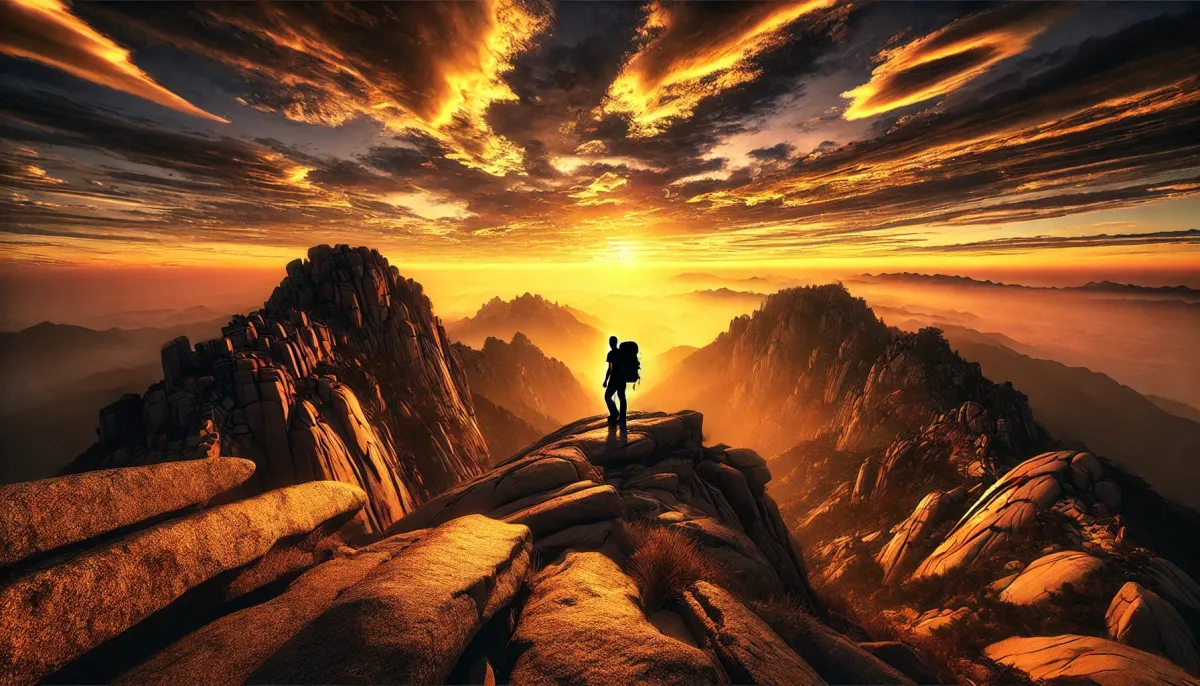Hi everyone, Mark here! As a seasoned backpacker with a passion for exploring Asia's incredible cities and landscapes, I'm thrilled to share my recent adventure climbing Mount Tai (泰山) in Shandong province, China. This wasn't just any hike; it was a journey through history, culture, and a seriously challenging physical test!
The Ascent: A Journey Through Time and Toil
My adventure started with a short electric scooter ride to the base of the mountain. Mount Tai loomed before me, a majestic giant promising a rewarding, yet arduous, climb. The entrance fee was 145 RMB. A 15-minute bus ride took me to Zhongtianmen (中天门), the halfway point. Normally, a cable car is available for 100 RMB, but it was unfortunately closed that day, forcing me to tackle the entire ascent on foot. This meant a grueling climb up thousands of steps in the 30-degree heat. Thankfully, it was a cloudy day, which provided some respite from the intense sun.
The path I chose, the "Imperial Road" (御道), held historical significance, having been traversed by emperors like Qin Shi Huang and Han Wudi for centuries during their grand ceremonies. I passed by the Wusong Pavilion (武松亭), marveling at the Fei Laishi (飞来石) – a precariously balanced boulder – and the remnants of the Wudaifu Song (五大夫松), five ancient pines that inspired Qin Shi Huang to name his loyal advisors "five great men". Although the original five trees are long gone, two replacements stand as testaments to the past.
Near the Songshan (松山), I found the Wan Zhang Bei (万丈碑), a cliffside inscription composed by the Qianlong Emperor. From there, I could finally see my destination – Nantianmen (南天门) nestled between two peaks, a seemingly insurmountable distance away. The final ascent, known as the "Eighteen Turns" (十八盤), was particularly daunting. This 800-meter stretch, with a 400-meter vertical climb and 1600 steps, is iconic, resembling a heavenly ladder. It took me a grueling two hours to conquer this section alone.
Reaching the Summit: Views, Temples, and a Well-Deserved Rest
Reaching Nantianmen was an incredible feeling! The view from the peak was stunning. The sheer accomplishment made me think of various Chinese idioms associated with Mount Tai: "lighter than a feather, heavier than Mount Tai" (轻于鸿毛,重于泰山) and "to climb Mount Tai and see the world as small" (登泰山而小天下). "Mount Tai and the North Star" (泰山北斗) came to mind as well, symbolizing the highest standards.
Beyond Nantianmen, I discovered a serene landscape with various temples, including the Dongyue Temple (东岳庙), dedicated to the god of Mount Tai. The panoramic vista was breathtaking; a stark contrast to the challenging climb.
I found lodging near the various hotels and guesthouses surrounding the mountain. The various options catered to all sorts of budgets, so rest assured you can find something suitable for your trip.
Sunrise at the Summit: A Spectacle to Remember
The next morning, I woke up early to witness the legendary sunrise over Mount Tai. Many people were already gathered at viewing points like the Guanlutai (观鲁台) and the Yuhangding (玉皇顶), the highest peak at 1545 meters. While the weather wasn't ideal due to cloud cover which unfortunately obscured the sunrise, the atmosphere was electric with anticipation. The experience, even without a perfect sunrise, was unforgettable. I later learned that Mount Tai, while not the tallest of the Five Great Mountains of China, holds a special place in history and culture. Its historical significance, from the imperial ceremonies to the countless poems written about it, elevates its status to "Five Peaks, the Unique One" (五岳独尊).
Planning Your Mount Tai Adventure: A Practical Guide
Here's a summary to help you plan your trip:
| Item | Cost (RMB) | Notes |
|---|---|---|
| Entrance Fee | 145 | |
| Bus to Zhongtianmen | 30 | Alternative: Hike (approx. 2 hours) |
| Cable Car (Zhongtianmen to Nantianmen) | 100 | Often closed, check availability in advance. |
| Mountain Lodging | 100-200+ | Varies widely depending on room type and season. Cheaper options are dorm-style. |
| Breakfast | 10 | Simple but filling; includes oil sticks, soy milk, porridge, and more. |
| Water (Zhongtianmen) | 2 | Significantly cheaper than at the summit. |
| Water (Summit) | 8 |
My Mount Tai Experience: Final Thoughts
Climbing Mount Tai was a life-changing experience. The physical challenge was immense, but the rewards – both physical and spiritual – were far greater. The stunning views, rich history, and vibrant culture created an unforgettable journey. I highly recommend it to anyone seeking an adventure in Asia, combining the thrill of a mountain climb with a deep dive into Chinese history. Remember to plan carefully, pack appropriately, and most importantly, be prepared for a steep but incredible climb.







